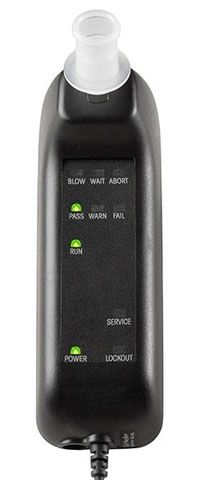 A family in Miami, Florida, is suing a car-sharing company after their family member died in a car crash. The young woman killed in the crash was the passenger in one of their vehicles, riding with a drunk driver. Her family claims that the car-sharing company should have car breathalyzers or ignition interlock devices (IIDs) installed on all their vehicles so that intoxicated people cannot drive the cars. The car-sharing company states that all drivers are members and must sign mandates claiming they have not taken anything, including alcohol that could impair their driving.
A family in Miami, Florida, is suing a car-sharing company after their family member died in a car crash. The young woman killed in the crash was the passenger in one of their vehicles, riding with a drunk driver. Her family claims that the car-sharing company should have car breathalyzers or ignition interlock devices (IIDs) installed on all their vehicles so that intoxicated people cannot drive the cars. The car-sharing company states that all drivers are members and must sign mandates claiming they have not taken anything, including alcohol that could impair their driving.
Cases like this bring up interesting points. Should rental and car-sharing companies be required to have car breathalyzers installed in their fleets? We all know how important deterring drunk driving is, but currently car breathalyzers are only mandated for use after a drunk driver has been caught… as a punishment. But, many people who feel we should all take a more proactive approach to deterring drunk driving agree that installing car breathalyzers in all rental and “ride share” vehicles is a good start to decreasing the risk of all drunk driving incidents.
Car breathalyzers make it impossible to drive or continue driving while intoxicated. The question this case raises is who is responsible for drunk drivers? Are the drivers themselves responsible or are the vehicle owners responsible? When it comes to private ownership, driver and owner are often the same person. When a typical driver is convicted of a drunk driving offense, the person’s vehicle is often placed under the jurisdiction of law enforcement because irresponsibility has been proven in a court of law. That is not the case with rental and car-sharing companies. Even if drivers misuse the company’s vehicles, they have already signed papers acknowledging personal responsibility, so that companies are not held liable for the behaviors of drivers.
At the same time, rental and car-sharing companies are parts of our communities. If the potential for drunk driving can be decreased, even slightly, by installing these devices in their vehicles, why wouldn’t they want to help? Are the costs of having a car breathalyzer in every vehicle these companies own more of a concern than the true costs of a fatal drunk driving accident?
As car breathalyzers continue to save lives, there are definitely situations in which the devices can be used in a proactive manner and ultimately keep our streets safer from those who make the choice to drink and drive.

 Got the Buzz? How to Change OWI Laws in Wisconsin
Got the Buzz? How to Change OWI Laws in Wisconsin